Kyle Lamb has lived a life most couldn’t even dream of. He grew up in a small town in South Dakota, but by the age of 24 he had been selected into the most elite special operations unit in the military. He went on to serve in “The Unit” for the next 15 years with deployments to Somalia, Bosnia, and Iraq on multiple occasions (among many others).
Since Lamb’s retirement from the U.S. Army, he has authored two books on topics ranging from marksmanship to leadership and founded Viking Tactics, Inc., which specializes in tactical training and equipment. You may have even seen some of his articles in Guns & Ammo magazine or his face on the Outdoor Channel.
Coffee, or Die Magazine recently caught up with the retired sergeant major to talk about everything from combat in Mogadishu to his passion for history. Check it out:
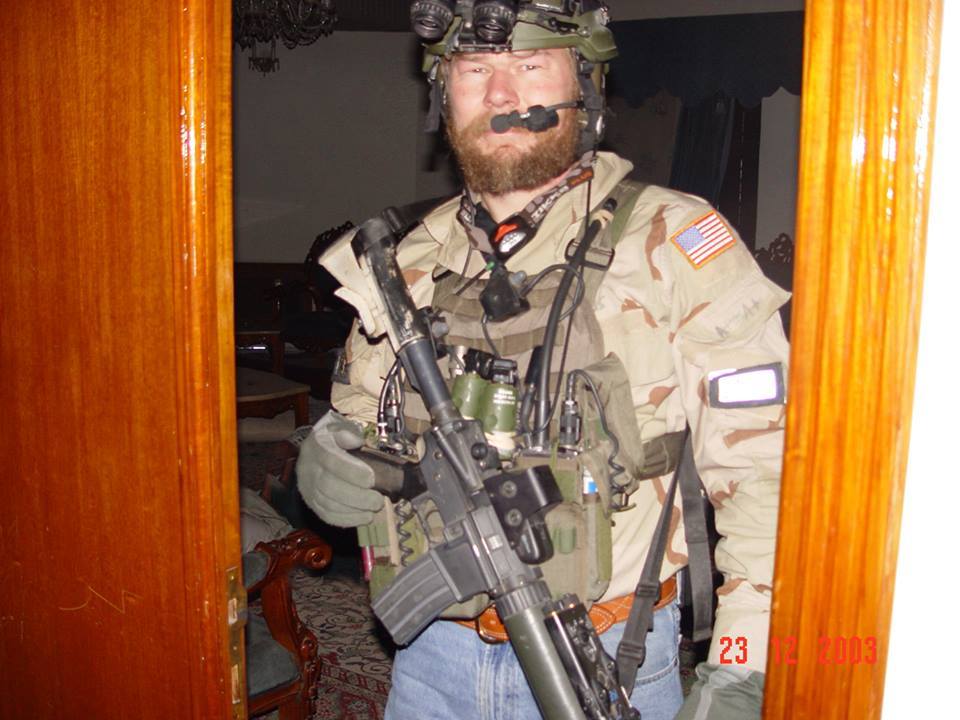
You spent the vast majority of your career as a member of the military’s premiere special missions unit. There’s a lot of mystique that (rightfully) surrounds that world, but what is the one thing that would surprise most people about what it’s like to live that life?
Probably how normal those guys are. Not everyone there is like that, but there are a lot of really normal husbands and dads. They go to work in street clothes, then put on their commando costume and go do crazy stuff. Everyone expects those guys to look and act a certain way, but a lot of them aren’t like that at all. Their neighbors don’t even know what they do. It’s just a different world.
Looking back, what was the scariest “oh-shit” moment in your career?
I think probably the one that stands out the most was being in Somalia in a big gun fight and thinking, We’re done, we’re not gonna make it out of this. I said a prayer and decided to just do the best I can and not be a coward. That doesn’t mean you don’t have the pucker factor though. I don’t think you ever get to the point where you know how you’re gonna act in that sort of situation.
Once you get to a certain level in your training, and once I became a troop sergeant major, my biggest scare then was when we were getting ready to go out. I didn’t want anything to happen to my guys. Not so concerned about myself — I knew I was with the best group of guys, best medics, best equipment — I just didn’t want anyone to get jacked up on the mission.
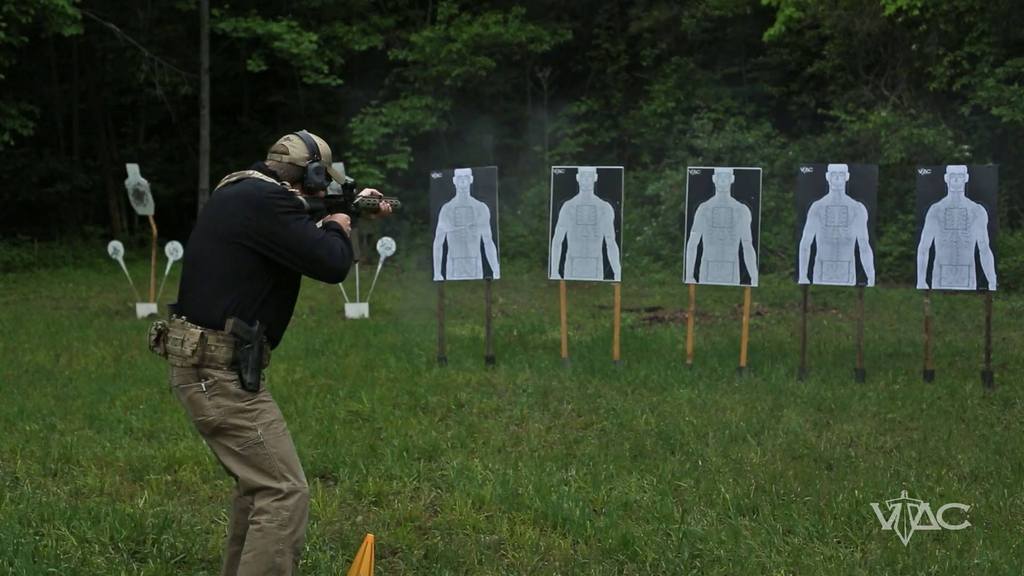
What was your plan when you retired from the military?
I was scared to death but what helped me was that I had prepared myself pretty well before I got out. I already had 42 weeks of range classes booked before I got out. So I knew the first year I was gonna be working, making decent money, and I just hoped I would survive after that.
Well, the first year was difficult, but not because of work — I mean, I worked my butt off — it was because of separation anxiety and not having a mission. Luckily, I was around a lot of law enforcement and military guys though, which helped.
You seem to be a student of history. With the U.S. on its 17th straight year at war, how do you think this era will be viewed in future history books?
I’m a diehard history reader, studier, listener — whatever I can do. I haven’t always been that way though. I had a guy on my team named Earl Fillmore who died in Somalia. He would ask me questions about the Civil War, and I didn’t know the answers. He would say, “Man, you’re dumb.” So he gave me this book about Nathan Bedford Forrest. I read this book and thought, This is awesome, and it’s a true story.
So that really got me going with all history. I think being military guys, we definitely need to be students of history so we don’t repeat the same mistakes. And if you don’t like to read books, then listen to podcasts or audiobooks.
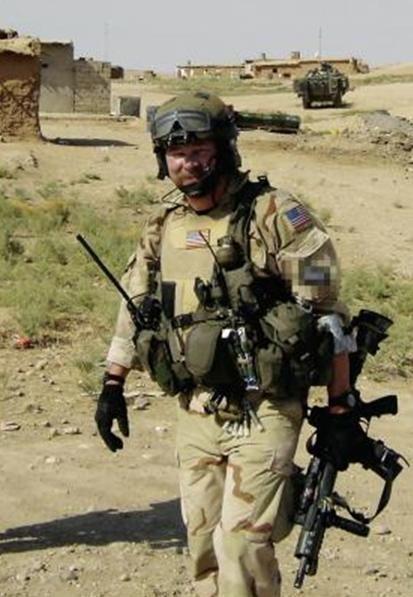
I think the war is one thing, but what we do at home during that war is the important thing. We’ve always had good warriors out doing good things, but now we have good warriors that are a smaller percentage of the population. And we said we’re gonna do this, and we went out and did this stuff for God and country, and I think the people who read history will say we had the greatest army in the world.
Yet we have more problems at home than a lot of other countries. I feel like we are so separated right now. It’s gonna read one of two ways: “Wow, they had the greatest army,” or “They ruined it with social experiments.” Where are we gonna be at? I just don’t know.
Finally, if you’re an American and you don’t feel that America should be No. 1, how can you call yourself an American?
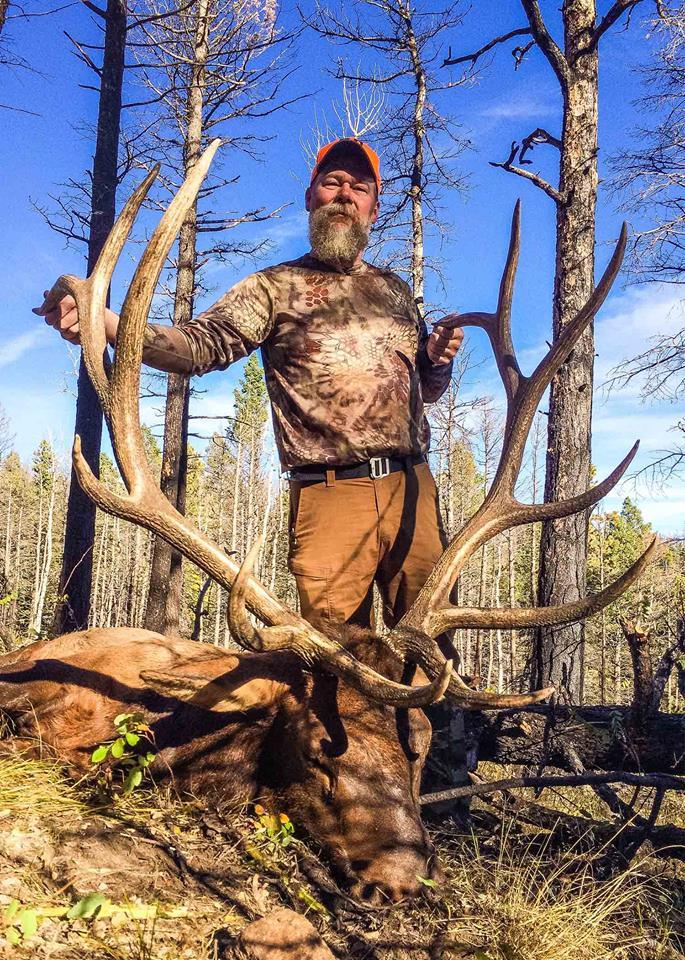
Was coffee a part of your daily routine while in the military? What’s the craziest place you’ve ever enjoyed a cup?
My love of coffee comes from the Army. That’s when I really got into coffee. When I went to Bosnia, I had some really good coffee there. It was really strong, kind of jacked me up. But it was smooth, had the smell, the aftertaste. When I would deploy, I would take an espresso machine with me, a small basic one and a grinder, too. I would take whole beans with me and grind ’em up. I would brew it, and guys would look at me like a I was a weirdo. But by my fifth trip to Iraq, half my troop was bringing an espresso machine with them.
Everything’s relative though. Normal to me is strange to you. Probably the best places I like it is at a high altitude while hunting elk. Water boils at a lower temperature, which makes a difference with your coffee. I enjoy the coffee with that vantage point, that sun coming up.
You’ve written a few books, including one on leadership. During your tenure, you led specially selected, elite humans performing at the pinnacle of their profession. Do you think your leadership philosophy is better or worse because of that?
Leading smart people is more challenging than leading stupid people. I was leading a lot of intelligent guys who were physically fit; top performers. People like that you can’t just bully them into following you.
Watching how some people lead in the civilian world, I feel bad for them. They try to bully and don’t define their mission. They are so politically correct that they’re ineffective. I want the truth, even if it hurts. Our guys were super honest because we wanted to be the best; we wanted our unit to be the best. If you have thin skin, you’ll get eaten alive. You want performers on the team, not people who believe in status or entitlement.
You need to look at all the people you are working with or for and figure out their strengths and weaknesses. Build on their weaknesses and utilize their strengths. People who aren’t out of control but are pushing the envelope.
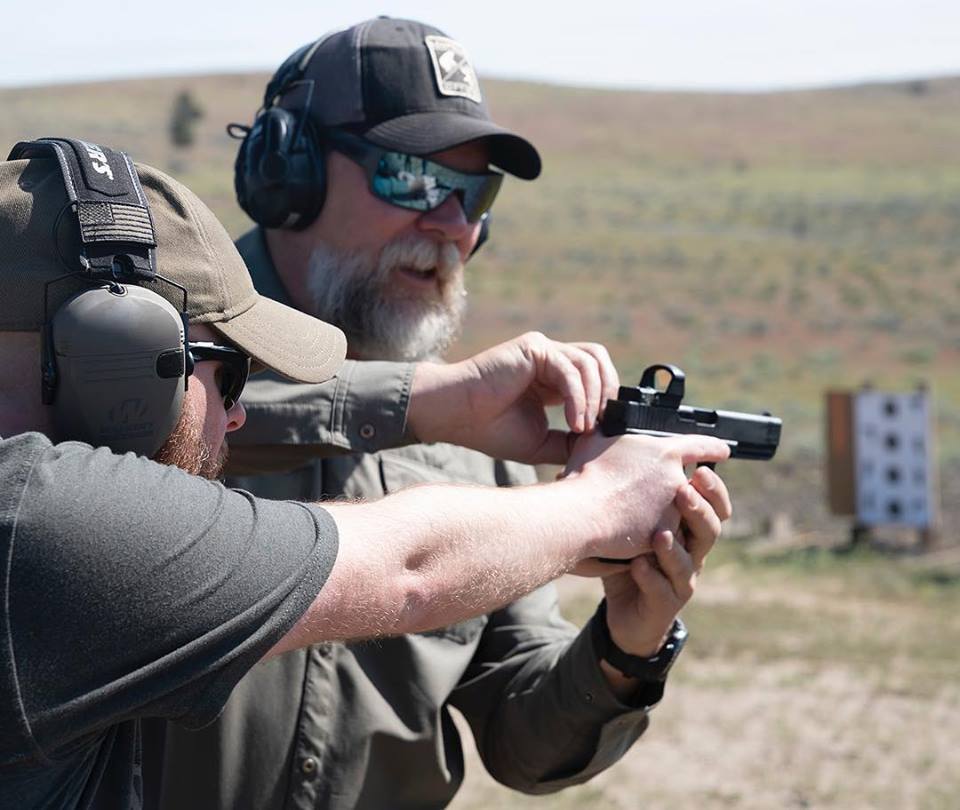
Many guys who serve in special operations and then go on to live public lives face criticism from their military peers for stepping out of the shadows of the “quiet professional.” Have you faced those criticisms, and if so, how have you dealt with it?
The difference is that I haven’t let any secrets out of the bag. The other difference is that I had my books approved by the unit. Any redactions that they asked for, I did it. I did have one TV show that I did — I never said anything about the unit, but one guy wanted to string me up for that. What that really did for me, at that point in my career as a washed-up military dude doing my thing, is upset me for a while. I was like, Why did I do that? Then I got mad. So, I called up the unit commander and said, “Hey man, what’s going on? This dude’s trying to throw me under the bus.” He said nothing’s wrong, don’t worry about it.
But here’s the deal: Eventually you’re going to get out of the military, and you’re allowed to use the term “Delta.” They tell you that when you get out, but I never used it. I’m glad that happened though because it was a real learning and growing experience. I’m just not gonna sweat it anymore, but I’ll still abide by all the rules. When you get that one dude out of a thousand who attacks you, it just shows he was never your friend to begin with.
Most guys coming out of the military are much better with a rifle than a pistol. If you had to narrow it down, what’s the one thing that will improve a pistol shot more than anything else?
You need to train. There’s not one specific little task that you can perform, it’s a total package. You gotta draw safely, present the weapon, squeeze the trigger straight to the rear, follow through on the shot, and repeat as necessary. One mag, one kill. Get out and train on your own, and once you hit that plateau, go seek professional training from someone who is a better shooter than you. Then take it to the next level. If you were in the military, you might be familiar with weapons or comfortable with them, but you may not be the best shot so get out and train. The pistol is much more difficult to shoot than the rifle for most military people.
This article was originally published Aug. 31, 2018, on Coffee or Die.
Read Next: Incredibly Dumb Moments in Survival Movies

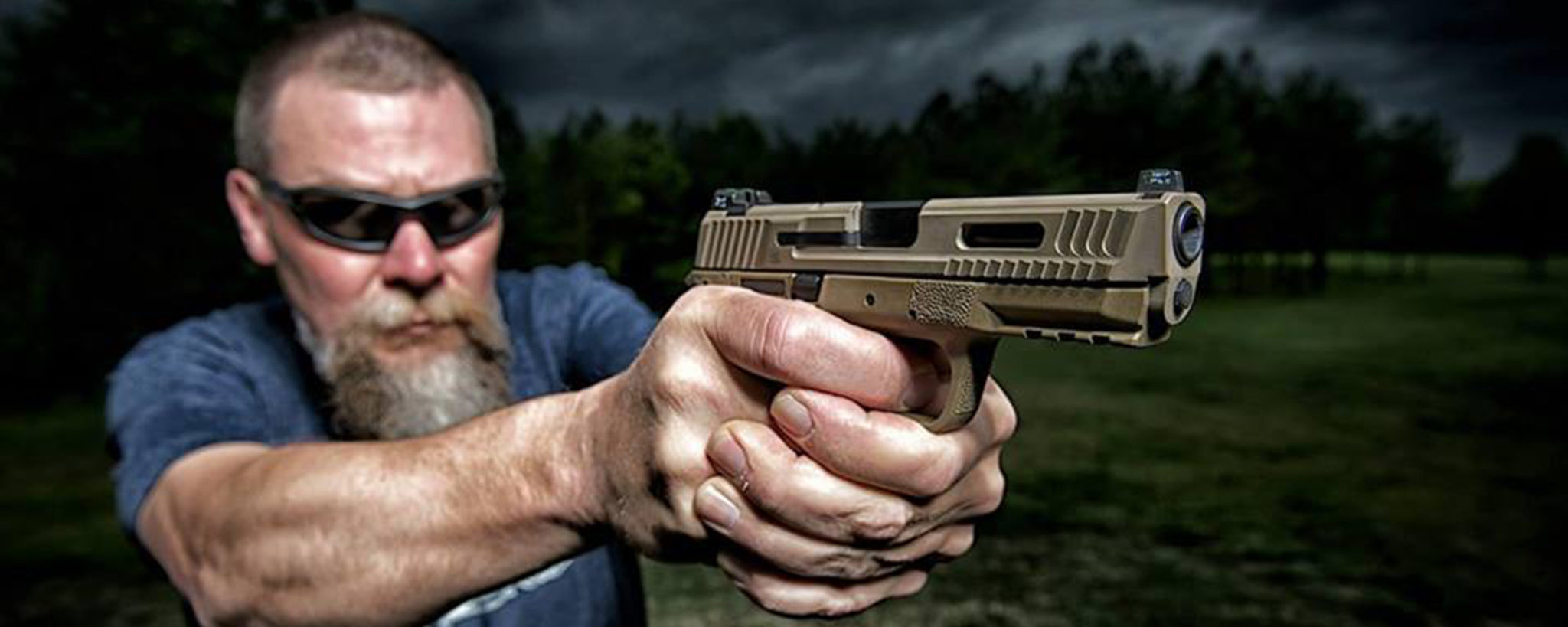

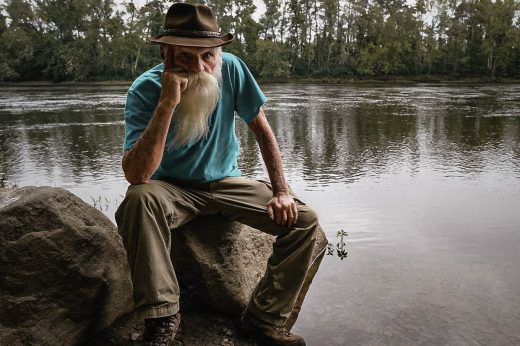
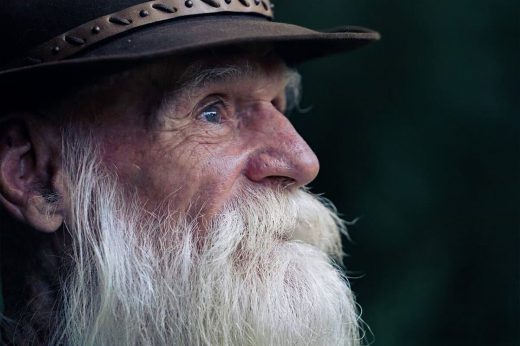
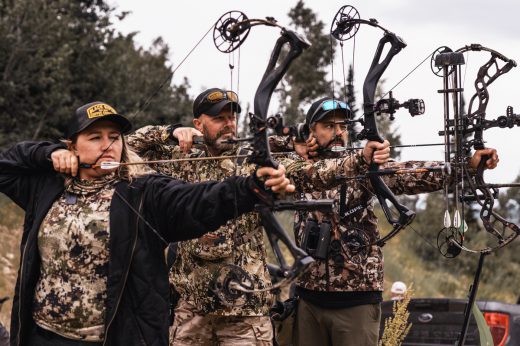


Comments